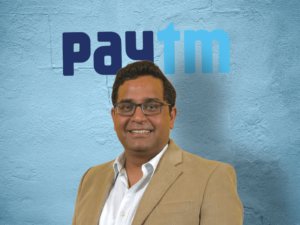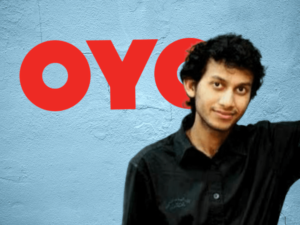Top 10 Most Valued Startups in India in 2021
India’s startup success spans e-commerce, education technology, food distribution, and transportation logistics.
The business culture in India encourages and inspires aspiring Indian entrepreneurs to dream of successful startups India. Here we’ll discuss the most valued startups in India and their founders.
List of Top 10 Most Valued Startups in India in 2021
Byju’s | How did Byju’s come to be on the list of successful startups india?

Byju has made a huge impact in the Indian ecosystem with its end-to-end learning app. Byju’s is the most valued startup in India which was valued at $16.5 billion.
Bengaluru, Karnataka, India, is a thriving startup hub that has significantly contributed to the Indian economy through continuous growth.
The Bengaluru Karnataka India-based ed-tech start-up Byju’s is now the world’s third most valuable unicorn startup after taking the No.3 spot in the list of the world’s most valuable startups after raising $350 million in a fresh funding round from investors.
The latest round values the ed-tech start-up at $16.5 billion, according to Bloomberg. This Series D funding brings Byju’s valuation close to that of rivals, Infosys and Wipro.
The new funding will help Byju’s expand in the US, Australia, and China, along with developing new products and maintaining its leadership in the ed-tech sector.
Earlier this year, entrepreneur Byju Raveendran left his job at Wipro to create a learning app that teaches students from kindergarten to 12th grade in multiple subjects. Raveendran began building Byju’s after dropping out of engineering school because he didn’t like the course he was on. He wanted to offer a more engaging learning experience to students.
Over time, he learned that the learning industry in India was full of inefficient teaching tools that didn’t work for students. In the space of education, there was a big gap between the demand and the supply. The Young entrepreneur developed several learning apps in the last few years with his team of about 20 members.
Paytm | Another startup in the list of successful startups in India in 2021

Founded in 2010 by Vijay Shekhar Sharma, Vijay Davorjhi, and Nishant Gupta, Paytm had an interesting journey, much of which was hazy before it was unveiled to the world in 2010. Sharma was the founder of the country’s largest online gold trading portal, Newshunt.com, which also owned gold price service Business Cards. Soon after Paytm’s announcement to the world, various accusations and allegations were levied at the founders of the business.
Sharma and Davorjhi were questioned by the Serious Fraud Investigation Office (SFIO) over the business, which was acquired by NewsHunt for $1.2 million in March 2010. Meanwhile, Davorjhi’s bank denied the latter’s permission to get into the gold business. In August, it was revealed that Sharma, at one point, personally took a loan from NewsHunt.
Being the third-most valued startup in the world today (after Chinese unicorns such as Ant Financial and Alibaba), Paytm has been named the most valuable startup in India in terms of valuation by EY in its annual “India 500” listing.
The entire ride since inception has been to become one of the most successful startups in India, and also the world. Paytm is a company that embodies everything that we know has been wrong with how India does business for the last three decades. With their data-first, digital-first approach to payments, today over 552 million users use the Paytm mobile app to pay for their utility bills, gas, groceries, taxi, and all other day-to-day spends.
Paytm, which was valued at $16 billion with the future planning of post IPO valuation of around $25 billion.
Of course, India has plenty of other unicorns, too. Delivery app Zomato is worth $1.1 billion, while cab-hailing company Ola and food delivery service Swiggy are valued at $1.5 billion and $1.9 billion respectively. Both have reported strong growth recently, and enjoy a stable capitalization. Over the next year, Paytm will have the task of proving it can build a business in India that lasts even longer than the first decade.
After all, tech companies in the country are often orphaned and have to eventually move on to another country. Perhaps it will prove a watershed moment for Indian technology entrepreneurs. Or, perhaps it will be another casualty of the world’s biggest startup city, Delhi.
OLA | Valued at more than 6.32$ billion in 2021

Bhavish Aggarwal founded OLA with Ankit Bhati in December 2010. He started the cab service to give cab service on time and the move.
OLA is currently valued at $3 billion but could raise an additional $500 million at a valuation of $5.3 billion, according to the report. “India’s largest taxi aggregator, Ola, has raised a $1.2 billion funding Indian startups round that values the company at $3 billion,” the report added. Amit Singhal, Uber’s former senior vice-president who was in charge of Uber India until he was asked to resign by CEO Travis Kalanick in February this year, has been appointed as the CEO of Ola, while Bhavish Aggarwal, co-founder, and chief executive of Ola, will remain the founder.
At the time of Singhal’s resignation, Kalanick had said that he needed a change in leadership.
Reports place Ola’s value at more than that of companies like Google, Facebook, Snapchat, and Airbnb, among others. The report ranks Ola second on the list of ‘6 companies to watch out for in India,’ which e-commerce major Flipkart tops.
The second five companies on the list are Snapchat (worth $15.1 billion), Messenger (worth $5.4 billion), BigBasket ($4.1 billion), Paytm ($3.2 billion), and Ola (worth $4.5 billion). E-commerce, logistics services Tripathi Anant, Co-founder of Ola was quoted by Forbes as saying that the company’s recent acquisition of Indonesia’s GoJek is a major growth driver for the company. “In the last five years, Ola has served over 200 million customers in over 1,100 cities.
OYO Rooms | On the list of most valuable Indian startups in 2021 worth $10 billion

The hotel booking startup is the brainchild of Ritesh Agarwal, a former engineer at I.T. major Tata Consultancy Services (TCS). Agarwal started OYO in 2013 and ran it as a social enterprise till 2016. The startup is now fully investor-backed.
Curious to know what all OYO Hotels has achieved? In the last 5 years, OYO has expanded in many cities of India and now occupies a market share of around 15 percent of the hotel industry in India. OYO is also a most preferred hotel chain amongst travelers across the country.
OYO has a network of over 200,000 hotels in over 380 cities of India. These hotels are located in cities like Guwahati, Jaipur, Kolkata, Hyderabad, Chennai, and New Delhi among many others. OYO is the world’s most affordable business hotel chain. The cost of a stay in OYO hotels starts at as low as Rs 130 per night and Rs 180 per night in Delhi and Mumbai respectively.
Zomato | A food delivery giant in India worth around $5.4 billion

Zomato is a restaurant search and discovery platform that operates in 28 countries.
Deepinder Goyal and Pankaj Chaddah founded it in 2008, and as of 2018, it holds a valuation of around $5.4 billion and continues to grow.
Deepinder Goyal started working in the food technology company Info Edge as an application designer. He then worked as a project manager at an ad agency and at Tally Solutions. Deepinder decided to leave the ad agency and use the skills he learned there to start the online food ordering and delivery company in 2006.
Zomato is a popular food ordering and delivery platform in India and now has operations in more than 100 cities across the country. This is not the first time Zomato has faced backlash for the advertisement it ran. In 2013, the Advertising Standards Council of India (ASCI) banned a poster used to promote the food delivery service for misleading customers about the quality of food. The ASAI also claimed the advertisement showed an image of food when it did not.
Swiggy, India’s Biggest Food Delivery Startup Is Now Valued At $3.5 Billion

Nandan Reddy, a former managing director at Tiger Global Management, was the first employee at Ola. He worked with Uber for six years, where he launched UberPOP and helped with the merger of Uber and Ola to create the leading ride-hailing service in India. He left in 2014 to found Swiggy.
Reddy is a graduate of Harvard Business School. “> Swiggy, India’s No. 1 food delivery startup in the list of successful startups India, has been valued at over $3.5 billion after it raised $210 million in a funding Indian startups round led by Tencent.
The investment values of the Bengaluru Karnataka India-based startup at over $4 billion. The investment round also saw participation from existing investors Naspers, Accel, Tiger Global, and Bessemer Venture Partners.
India’s largest food delivery startup is valued at $3.5 billion. It’s a big deal for a country where the food delivery business is in its infancy stage. Foodpanda, the food delivery company that sold to its rival Swiggy, is now worth $3.5 billion.
Dream 11, the first Indian fantasy gaming company valued at $5 billion

Anirudh Devgan, co-founder, and CEO of Dream 11 was the co-founder and CEO of mobile gaming company Freemium. He was born in 1990.
In 2012, Stanford University awarded him a degree, and he earned selection for participation in the Silicon Valley Science and Engineering Fair.
He studied at Harvard Business School from 2012 to 2016 and was a member of Harvard University’s Innovation Lab. He completed his MS in Operations Management at MIT Sloan School of Management. After completing his education, he worked at Huddle Inc as to the vice president of operations for its India subsidiary. He moved on to start a fast-food chain and later acquired an application called ‘Foosball Arena’ which was an online application for mobile games and augmented reality.
Mumbai-based company Dream11 is valued at $5 billion. Private equity firm Kalaari Capital, based in Mumbai, and gaming and internet giant Tencent, based in Taiwan, back Dream11, which is a fantasy sports gaming platform.
After a long period of negotiations with Vivo, the company managed to get the IPL rights for the season 2020 for $ 2.22 billion. Kalaari Capital’s managing director Harsh Mariwala confirmed the deal for the gaming company on a social networking site.
Dream 11 was founded in 2016 and has the right to host a live fantasy sports league during this season as well. The fantasy game allows a player to pick his XI team from the listed playing elevens from different cricket teams.
Freshworks, valued to above $3.5 billion

Freshworks‘ co-founders are Girish Mathrubootham and Shan Krishnasamy. Girish has an M.Tech from IIT Kanpur and B.Tech from IIT Kharagpur. He began his career in October 2000 as a research scientist in aerospace systems at the NASA/Ames Research Center in the USA.
After his time in Paris, he returned to India, where he joined the software industry and established a technology consulting company. India’s largest telecom service provider, Airtel, acquired the company.
Then, he went to work for Cisco Systems, where he helped to build its partnership program in India. He joined Cisco in December 2004 and is the former vice president of business development for India. He is now the CEO of Freshworks. Also, he is also a member of the board of NASSCOM, CII, and BIMA.
Now, why is this interesting? Freshworks is based in San Bruno, CA. You guessed it, San Francisco. Is the city of San Francisco the new Silicon Valley? If you have ever used Freshworks, you would know that they have been gaining momentum quickly. You can’t say they have not done anything right, they are making headway for some pretty stiff competition. They just spent a quarter of a billion dollars to acquire Invoicera, the U.S.-based invoicing company. In addition, the startup has received $85 million which made its valuation above $3.5 billion.
Udaan | B2B E-commerce platform valued at more than $3 billion

Founded by Amod Malviya, Sujeet Kumar, Vaibhav Gupta, Udaan is a Bengaluru Karnataka India-based one-stop shop for all needs for businesses of different sectors. Udaan.com is a B2B e-commerce platform that specializes in product discovery, product comparison, merchant services, and online marketplaces, thereby enabling companies to reach a wider audience, faster.
Udaan provides its customers with a comprehensive range of services and benefits for their online business needs. These services are based on each different sector, like Shops4warehouse.com, WHOSAY.com, Roadtik.com, Bitturu.com, and Iregua.com. The funding Indian startups will allow Udaan to enter overseas markets like China, Singapore, the US, UK, etc. Udaan is growing at 20% every month, having 7 million customers. It has enabled 2.2 million businesses across 8 different sectors.
Udaan is a B2B e-commerce platform that provides a platform for traders and vendors to sell products and services.
It is one of India’s leading B2B online marketplaces with over 65,000 products on its platform from suppliers across India, Nepal, and Indonesia. Udaan’s platform provides a simple, secure, and efficient selling platform where its thousands of vendors and suppliers have set up a base to connect with potential buyers and sellers across the world.
After a recent fundraise of $280 million, Udaan’s state-of-the-art e-commerce platform, seamlessly integrated with Udaan’s core business of aggregating and facilitating the sale of local goods, now holds a valuation of more than $3 billion.
Policybazaar valued at $2.4 billion

The founder of Policybazaar.com is Yashish Dahiya with Alok Bansal, and Avaneesh Nirjar. He was earlier an employee at the Indian Association of Mutual Funds, which he co-founded along with his wife Pinky in 2004.
Their first product was an investment fund called the National Real Estate Fund in 2004. By 2006, they began acquiring insurance products independently. In 2008, the couple launched Policybazaar.com and commenced selling insurance.
Later in the same year, the couple tied the knot, and they rebranded the company as PolicyBazaar.
Further, he owns 6.5% of the parent company, ETechAces Marketing and Consulting, with institutional investors holding the rest.
With this latest round of funding, Sanjay Dutt’s shareholding has gone up to 16.55 percent from 6.5 percent.
According to the Economic Times, Policybazaar became the first Indian startup to attain a valuation of over Rs 20,000 crore.
According to the Economic Times, Policybazaar is the first Indian start-up to reach a valuation of over Rs 20,000 crore.
This is a significant milestone for the company. Moreover, it is on course to reach $1 billion in gross premiums this year, up from $450 million in 2016, according to the Times. Furthermore, in 2017, Policybazaar became the largest online insurance provider in India, with a 29% market share.
What factors contributed to India’s success in startups?
Growing Innovation Over the last decade, India has witnessed rapid innovation and enhanced skills needed for engineering and manufacturing. This has resulted in growing employment opportunities for skilled labor and a large network of a quality workforce. These factors led to a market-specific demand for startups in India. Challenges India has witnessed a high number of fraudulent activities in the last few years. Since India is a huge market for startups, investors often end up investing in fraudulent projects. Companies under pressure Indian startups face high pressure, particularly due to an entrepreneur’s limited exit strategy.
What are some of the biggest challenges that Indian startups are facing?
Every startup company has its unique challenges, but these challenges may not be unique to India. If you’re running an online education company, then you’ll need to ensure that your consumers/students are accessing the service conveniently and cost-effectively.
If you’re a logistics startup company, you’ll need to ensure that you have reliable supply chains to remain profitable. What are some of the most important criteria for picking a good startup? Atul Jain: We should remember that the start-up ecosystem in India is young, and can be really confusing.
Why do startups fail in India?
The fact is that a lot of startups in India fail, irrespective of their size. According to a report from EY, there were 46,000 start-ups in India in 2017, which is down from 83,000 in 2013. The numbers are very low considering the number of educated Indians who are looking to join startups. Also, 85% of founders are graduates or above, leaving little scope for someone with an average or a low-level education.
Startup companies fail due to a lack of proper planning, excessive marketing, and business models that don’t make sense. But in reality, most of these failures are avoidable and should not deter prospective entrepreneurs.
To achieve success, startups require strong intellectual property rights, along with a deep understanding of their product or service.
What kind of startups can I establish? A common question may be popping up in your mind. Let’s understand this.
India has witnessed several startups that were successful in the country’s overall startup ecosystem. As India is the world’s second-most populous country, the growth of Indian startups will continue to attract the investment of the top global venture capital firms and media, in the field of start-ups.
Furthermore, Indian entrepreneurs are incredibly passionate about startups.
More and more Indian companies will come up in the coming years, focusing on a sustainable environment and resources for building products that focus on customer care, technology, and quality of the product.
Over the years, the startup company culture has become one of the major areas of growth in the nation. Besides the concept of entrepreneurship, the world, in general, has boosted the concept of small businesses solving problems and raising as successful startups.
Startup Valuation Methods – No Nonsense guide to startup Valuation
What is the success rate of startups in India?
In the past two years, many Indian startups achieved rapid success through significant funding.
Thus, investors believe that startups should provide maximum returns during the first few months of their operations. In India, funding Indian startups from angel investors is still not popular. However, venture capitalists, venture capitalists, and angel investors have started to gain popularity in the last 5 years.
What will be the future of India?
The entrepreneurial ecosystem in India consists of innumerable upcoming entrepreneurs with great ideas. Still they struggle to be a success due to a lack of awareness and challenges of growing businesses. This is one of the major factors that are stifling the entrepreneurial aspirations of people.
The government’s initiatives under Prime Minister Narendra Modi have been criticized as a “promising start but falling short of expectations.”
Moreover, Prime Minister Narendra Modi has initiated schemes like Startup India and MSME to support Indian startups.
With evolving technologies and innovative startups, we have a strong chance of success in the startup race.
Conclusion
India’s startup culture is unique because it boasts an abundance of investors and startups.
One thing is for sure, India has come a long way. India is a great example of innovation, entrepreneurship, and at the same time, its export of technology, products, and services. If this trend continues, India will surely move up to the ranks of the most prosperous economies. Also, as we have mentioned earlier. Startup India program and MSME which was introduced by Indian Gov. under the vision of prime minister narendra modi is giving big support to the Indian startups.




